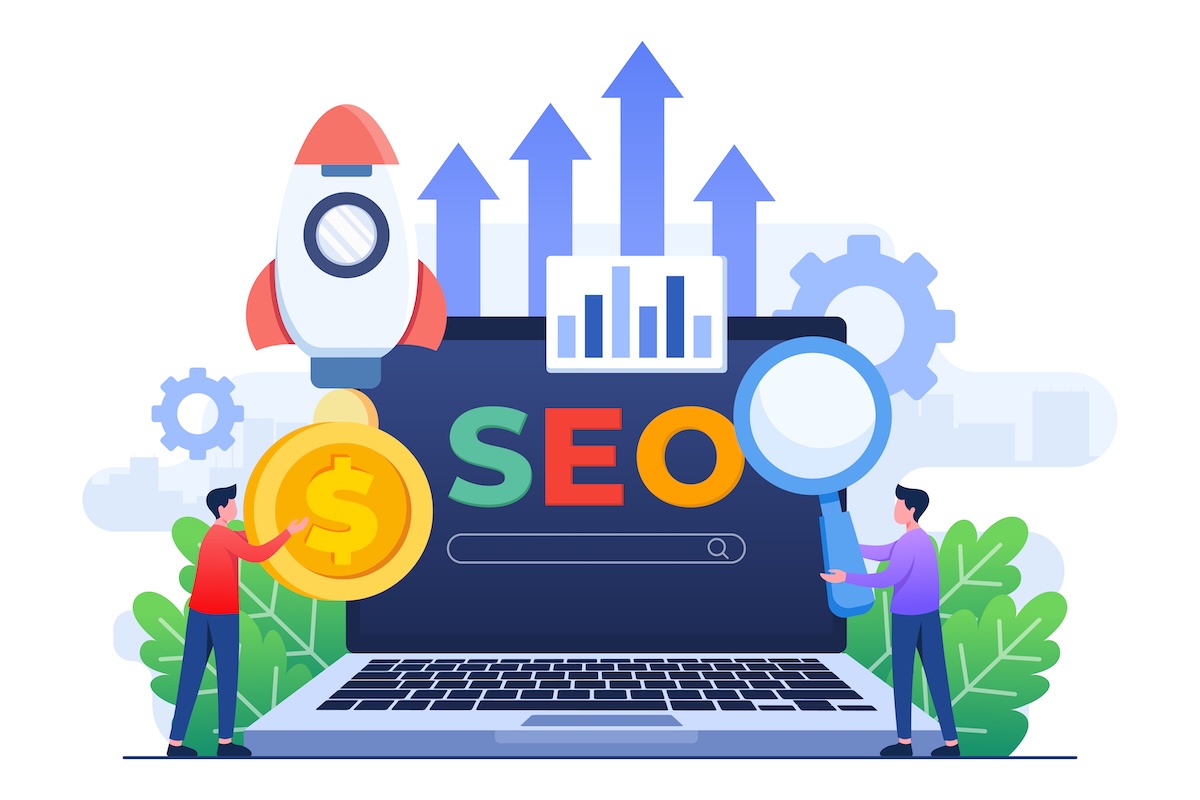
In the digital age, search engines are evolving rapidly. AI search engines are at the forefront of this transformation. They use advanced algorithms to deliver more relevant results.
Traditional SEO methods are no longer enough. AI-driven search engines require new strategies. Understanding these changes is crucial for success.
AI search tools are powerful allies. They analyze vast amounts of data quickly. This helps identify opportunities for better rankings.
User intent is a key factor in AI search engine ranking. AI algorithms focus on delivering content that matches user needs. This means relevance and quality are more important than ever.
Voice search is also gaining traction. Optimizing for voice queries can boost your visibility. AI advancements make this a priority.
Structured data and schema markup are essential. They help AI understand the context of your content. This can improve your ranking.
AI can predict search trends. This allows you to tailor your content strategy effectively. Staying ahead of trends is vital.
Mobile optimization is critical. AI search engines prioritize mobile-friendly sites. Ensuring your site is optimized for mobile is a must.
In this guide, we'll explore how to rank on AI search engines. You'll learn advanced SEO techniques and how to leverage AI tools. Let's dive in.
Understanding AI Search Engines: The New Era of Search
AI search engines have revolutionized how we find information. They process and interpret data much like the human mind does. This leads to more accurate and personalized search results.
These engines use machine learning algorithms. Such algorithms continuously learn from new data. This constant learning helps them improve over time.
One significant advancement is their ability to understand context. This goes beyond merely matching keywords. AI engines analyze search queries for intent and nuance.
Incorporating AI into search has reshaped search engine optimization. It requires more than just clever keyword placement. Content must be valuable and relevant.
What sets AI-driven search apart? Here are some key features:
- Predictive search capabilities: Understands what users may want to search next.
- Semantic understanding: Grasping the meaning behind search queries.
- Personalization: Customizes results based on user behavior and preferences.
AI search tools help in different ways. They can analyze vast datasets efficiently. This uncovers new ranking opportunities.
The role of Natural Language Processing (NLP) is growing. NLP allows engines to interpret user language better. This improves the interaction between search engines and users.
As these engines evolve, so do user expectations. People want quicker, more relevant responses. Meeting these expectations is essential for SEO success.
Understanding AI search engines is crucial. It forms the foundation for creating effective SEO strategies. Adapting to this new era ensures continued visibility and relevance.
How AI Search Engine Ranking Works
AI search engine ranking relies on complex algorithms. These algorithms evaluate numerous factors to determine content relevance. Unlike traditional methods, they focus less on keyword density.
The process begins with crawling. AI spiders intelligently traverse websites. They capture content, links, and other important data.
Once captured, the data undergoes analysis. Machine learning algorithms assess it for quality and context. This analysis helps rank the content against competitors.
Several factors influence AI-driven rankings. These include user behavior metrics and content structure. Engines prioritize engaging and well-organized content.
AI search engines also employ Natural Language Processing. NLP allows them to understand language intricacies. It helps them comprehend the user's intent behind searches.
Key components AI search engines consider:
- User Intent Recognition: Focused understanding of what users want.
- Content Quality Assessment: Evaluating the depth and utility of information.
- Behavioral Analytics: Observing user interaction patterns and engagement.
AI engines are adept at learning from real-time feedback. Adjustments are made continuously to improve accuracy. This constant adjustment aids in refining the search results further.
Unlike static ranking, AI-driven results evolve. They adapt to new data, trends, and user preferences. This dynamic nature demands ongoing SEO strategy updates.
To excel in AI search engine rankings, adaptability is key. Embrace new SEO practices in step with AI advancements. This proactive approach ensures sustainable search visibility.
Key Differences Between Traditional and AI-Driven Search Engine Optimization
Traditional SEO primarily focused on keyword optimization and backlinks. These elements still matter today but in different ways. AI-driven SEO emphasizes user experience and content relevance more deeply.
AI search engines use sophisticated algorithms. They prioritize understanding over mere keyword matching. This allows them to evaluate the intent behind a search.
Content quality is more scrutinized under AI-driven SEO. AI analyzes how well content satisfies user queries. It ranks based on depth, relevance, and user engagement.
Traditional SEO methods largely relied on manual data analysis. AI-driven SEO automates much of this process. AI tools offer real-time insights and optimization tips.
Key differences include:
- Focus on User Intent: AI SEO seeks to understand what users really want.
- Content Quality Over Quantity: Engaging, well-structured content is preferred.
- Automated Analytics: Real-time performance data influences ranking.
- Enhanced Personalization: AI tailors search results to individual user preferences.
- Dynamic Rankings: Content rankings adjust as AI learns more about user behaviors
Adapting to AI-driven SEO requires agility. It’s important to embrace these changes for sustained success. Strategies must align with ongoing algorithmic advancements.
Core Ranking Factors for AI Search Engines
AI search engines evaluate content through diverse factors. Unlike traditional systems, they prioritize understanding semantics and user context.
Content Relevance and Quality
Content relevance remains crucial. AI algorithms assess how closely content matches a user's query intent. High-quality content is rewarded for its depth and clarity.
User Engagement and Experience
Engagement metrics like time on page impact ranking. AI monitors these metrics to gauge content value. A positive user experience leads to better rankings.
Mobile Optimization
A mobile-friendly site is essential. AI-driven search engines give preference to responsive designs. Mobile responsiveness directly impacts user satisfaction and ranking.
Structured Data
AI engines thrive on structured data. Schema markup helps them understand content context. This boosts content visibility and discoverability.
Security and Accessibility
Secure, easily accessible websites perform better. HTTPS is a ranking signal in AI algorithms. User trust is enhanced by secure sites.
Voice and Visual Content
With the rise of smart assistants, voice search optimization is critical. AI understands and ranks voice and image content effectively.
Core ranking factors include:
- Relevance and Engagement: High engagement signals quality.
- Mobile-Friendliness: Essential for user satisfaction.
- Structured Data Utilization: Enhances content understanding.
- Security: HTTPS signals trustworthiness.
Technical SEO Factors
AI evaluates site speed and performance meticulously. Slow-loading sites face penalties. Optimizing technical aspects is vital for high rankings.
In essence, AI-fueled search engines present new challenges and opportunities. Effective strategies involve focusing on these diverse factors. Adapting quickly to these changes helps maintain visibility and ranking.
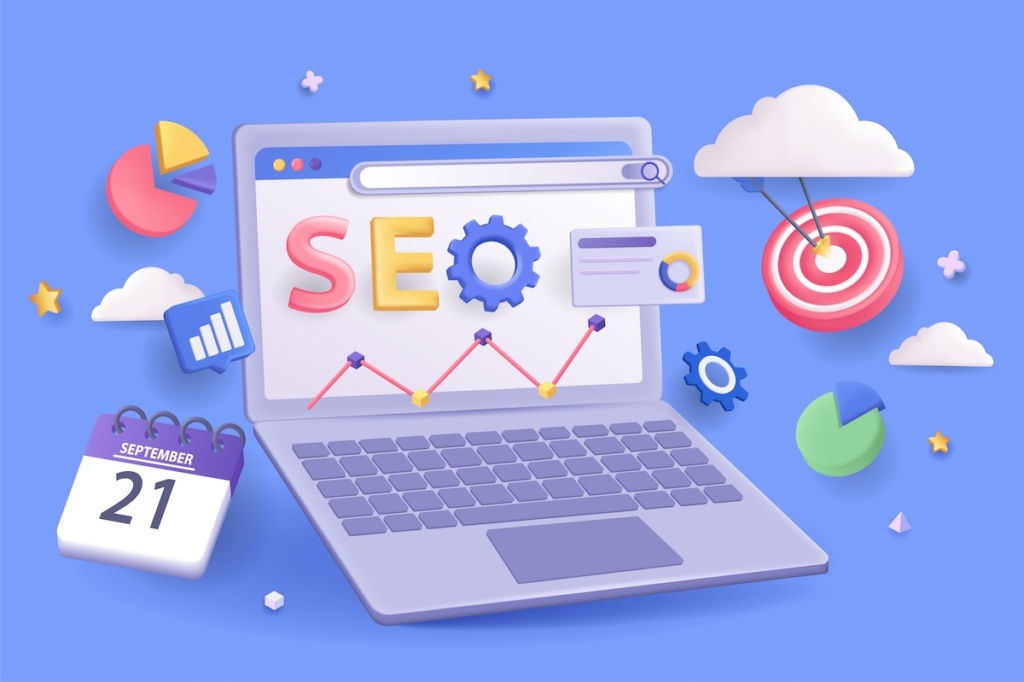
Optimizing Content for AI Search Engines
Optimizing content for AI search engines requires a multifaceted approach. The focus should be on creating content that resonates with the user and fulfills their needs effectively.
Content must be more than just keyword-rich. AI values depth, coherence, and relevance. Understanding these aspects can help improve rankings significantly.
User engagement metrics, such as dwell time, play a crucial role. Keeping users on the page longer enhances its perceived value.
Voice and visual content are increasingly important. AI algorithms are skilled at processing such content, making it vital to incorporate multimedia elements.
A balance between text, images, and videos can make content appealing. This diversity caters to different user preferences.
AI search engines also reward content that is fresh and regularly updated. Regular updates signal to AI that content remains relevant and authoritative.
Key Optimization Strategies:
- Prioritize Quality: Focus on well-researched, in-depth content.
- Incorporate Multimedia: Use images and videos to engage users.
- Update Regularly: Keep content current and relevant.
AI search tools assist in identifying content gaps. These tools can analyze competitor content and reveal areas for improvement.
By leveraging these insights, you can refine your content strategy. Doing so ensures content remains competitive and engaging in the dynamic digital landscape.
Understanding and Targeting User Intent
User intent is at the heart of AI search engine operations. Knowing what users seek to accomplish is paramount.
Understanding intent involves analyzing user queries. This analysis can reveal whether users seek information, wish to make a purchase, or something else.
Content should be tailored to match these intents. Aligning content with user expectations improves relevance and ranking.
AI tools offer insights into prevalent user intents. Such insights can guide content creation and optimization efforts.
User Intent Types:
- Informational: User seeks knowledge or answers.
- Navigational: User aims to reach a specific page.
- Transactional: User plans to make a purchase.
By focusing on these intent types, content creators can better meet user needs. Doing so fosters better engagement and satisfaction.
Leveraging Structured Data and Schema Markup
Structured data and schema markup are essential in AI search engine optimization. They provide context to content, enhancing understanding and visibility.
Schema markup consists of code snippets added to webpages. These snippets help search engines interpret page content accurately.
AI search engines prefer content with structured data. It allows algorithms to categorize content effectively, leading to improved discoverability.
Implementing schema markup is straightforward with the right tools. Many platforms offer plugins to simplify this process.
Popular Schema Types:
- Organization: Provides business details.
- Breadcrumb: Assists with website navigation.
- Article: Enhances news content indexing.
By adopting these schemas, content can appear in rich snippets. Rich snippets increase click-through rates by making search results more appealing.
Natural Language Processing (NLP) and Semantic SEO
AI-driven search engines rely on Natural Language Processing (NLP) for better content comprehension. NLP deciphers context, tone, and meaning, enabling more accurate search results.
Semantic SEO emphasizes optimizing content for better understanding by AI. It involves using natural language that reflects real-life interactions.
Content should include context-rich, synonym-filled language. This language aligns with how users naturally phrase queries.
NLP also assesses synonyms and keyword variations. A varied vocabulary ensures AI can accurately interpret content.
Semantic SEO Tactics:
- Use Contextual Language: Employ synonyms and related terms.
- Focus on Meaning: Prioritize content meaning over keyword repetition.
- Enhance Readability: Favor simple, flowing sentence structures.
Embracing these practices improves search results, aligning with AI's capabilities. This alignment leads to better rankings and user experiences.
Technical SEO for AI Search Engine Ranking
Technical SEO plays a critical role in AI search engine ranking. AI-driven systems prioritize performance, usability, and accessibility.
Robust site architecture underpins effective technical SEO. It's essential for facilitating easy navigation by both users and search engines.
Optimizing site speed is crucial. AI algorithms rank sites that load quickly higher, enhancing user experience and reducing bounce rates.
XML sitemaps, llms.txt, and robots.txt files assist search engines in page indexing. Proper configuration of these elements ensures all essential content is discoverable.
Key Technical SEO Elements:
- Site Architecture: Implement clear, logical site structures.
- Page Speed: Optimize for quick loading times.
- Indexation Tools: Use sitemaps and robots.txt correctly.
Perform regular audits to identify technical issues. These audits can uncover broken links, duplicate content, and crawl errors.
Optimizing these technical aspects safeguards against ranking penalties. Being proactive keeps a site in good standing with AI search engines.
AI search tools can automate many technical SEO tasks. Tools can optimize image alt text, meta tags, and manage redirects efficiently.
Mobile Optimization and Site Performance
Mobile optimization is non-negotiable for AI search engine ranking. With more searches happening on mobile, ensuring responsive design is vital.
Responsive design ensures a site adapts to various screen sizes. This flexibility improves user experience across devices.
AI algorithms assess mobile load speed. Fast-loading mobile pages rank higher, providing a seamless experience.
Mobile Optimization Tips:
- Responsive Design: Implement adaptable site layouts.
- Fast Load Times: Compress images and scripts.
- Test Regularly: Use tools to test mobile responsiveness.
Monitoring performance with analytics can catch issues early. Tools can pinpoint slow-loading pages and areas needing improvement.
Secure and Accessible Websites
Security and accessibility are critical ranking factors in AI search engines. SSL certificates provide a secure, encrypted connection, vital for user trust.
Search engines rank HTTPS sites higher, reflecting a secure status. HTTPS is a must-have for ranking well and gaining user confidence.
Accessibility ensures all users, including those with disabilities, can engage with content. This inclusivity impacts user experience and SEO positively.
Security and Accessibility Enhancements:
- SSL Certificate: Ensure site is HTTPS-enabled.
- Accessibility Standards: Follow guidelines like WCAG.
- Regular Security Audits: Identify and mitigate vulnerabilities.
Regular audits can identify security gaps. Addressing these ensures continued protection against threats.
AI tools can automate some security and accessibility checks. Consistent improvements build trust and contribute to higher search rankings.
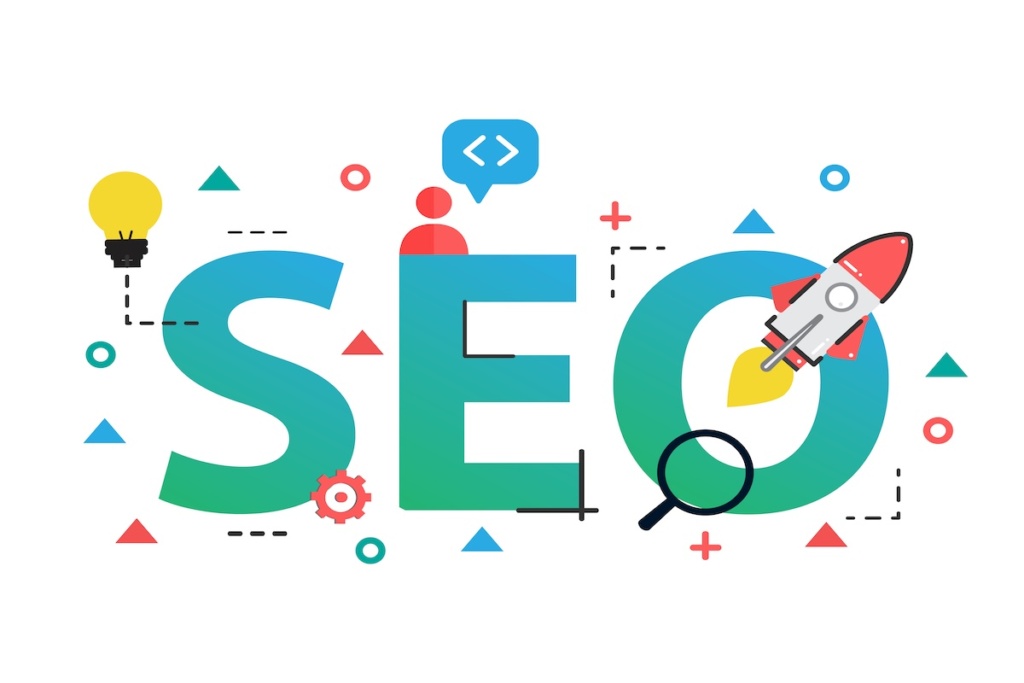
The Role of AI Search Tools in SEO
AI search tools significantly enhance the efficacy of search engine optimization. They streamline processes that were once cumbersome and time-consuming.
These tools analyze vast data sets quickly. Insights from this analysis reveal trends, opportunities, and areas needing improvement.
AI tools can predict search trends. This foresight allows for proactive strategy adjustments that keep content relevant.
Automated audits can uncover site weaknesses. Tools identify issues like broken links and duplicate content, saving time and effort.
Benefits of AI Search Tools:
- Efficiency: Faster data analysis and interpretation.
- Accuracy: Precision in detecting patterns and issues.
- Scalability: Managing vast amounts of data effortlessly.
AI enhances keyword research, providing insights into search intent. This assists in creating content that resonates with target audiences.
AI algorithms adapt as search patterns evolve. Continuous learning ensures SEO efforts remain aligned with current trends.
AI search tools foster smarter decision-making. The insights they provide drive more strategic, impactful SEO efforts.
AI Tools for Keyword Research and Content Strategy
Effective keyword research is the foundation of SEO. AI tools refine this process by identifying high-value keywords effortlessly.
These tools offer insights into user intent. This understanding aids in crafting content that meets users’ needs.
An AI-driven strategy detects gaps in existing content. This discovery presents opportunities to create engaging, fresh material.
Key Benefits of AI in Keyword Research:
- Intent Analysis: Understand what users truly seek.
- Opportunity Identification: Discover underexplored content areas.
- Strategy Refinement: Tailor content to meet real-time demands.
By leveraging AI, marketers enhance their focus on audience-driven content. AI ensures that strategies remain targeted and effective.
AI-Powered Analytics and Performance Monitoring
AI-powered analytics bring clarity to complex data. They offer real-time insights into user interactions and engagement patterns.
Using AI, performance monitoring becomes intuitive. Tools highlight metrics critical to optimizing site performance.
AI provides comprehensive views of marketing campaigns. Insights into click-through rates and conversion help refine strategies.
Advantages of AI-Powered Analytics:
- Real-Time Monitoring: Instant access to performance data.
- Actionable Insights: Data-driven decisions enhance strategies.
- Efficiency: Saves time analyzing complex metrics.
These capabilities assist in addressing issues preemptively. Identifying trends early ensures adaptability and continued success.
AI-driven insights empower marketers. They capitalize on strengths and address weaknesses swiftly, ensuring competitive advantage.
Enhancing User Experience (UX) for AI Search Engines
User experience plays a vital role in search engine optimization. AI-driven search engines prioritize sites providing an excellent user experience.
Ensuring fast loading times enhances UX. AI tools can identify bottlenecks and improve site speed significantly.
Navigation must be intuitive and seamless. Users expect to find information quickly without unnecessary clicks.
Components of Enhanced UX:
- Intuitive Design: Straightforward and easy-to-navigate interfaces.
- Speed Optimization: Fast loading times to retain visitor interest.
- Responsive Layout: Adaptability across devices and screen sizes.
Visual appeal also influences user perception. Clean designs create positive experiences and increase engagement.
Personalization caters to individual user needs. AI can tailor content based on previous interactions.
Personalization Benefits:
- Increased Engagement: Users interact more with relevant content.
- Higher Retention: Customized experiences boost returning visits.
- Improved Satisfaction: Content aligned with user interests enhances satisfaction.
AI evaluates user behavior to optimize experiences. Gathering data on interactions allows for strategic UX improvements.
Sites with superior UX rank better on AI-driven search engines. Prioritizing UX enhances both user satisfaction and site visibility.
Visual, Video, and Voice Search Optimization
Visual content has gained prominence in AI search engine optimization. As AI enhances its ability to process images, optimizing visuals becomes crucial.
Visual optimization involves using descriptive alt texts. Adding context to images helps AI understand and rank them effectively.
Video content should not be overlooked. AI technologies recognize and prioritize engaging video content.
Video Optimization Tips:
- Transcripts: Provide transcripts to improve accessibility and searchability.
- Relevant Metadata: Use accurate tags and descriptions.
- Thumbnails: Design eye-catching, relevant thumbnails.
Voice search continues to rise in popularity. Users prefer searching using natural language commands.
To optimize for voice, focus on conversational keywords. AI excels in processing these to retrieve the most relevant results.
Voice Search Strategy:
- Question-Based Keywords: Use phrases that align with natural speech patterns.
- Concise Answers: Provide clear, direct answers to potential queries.
- Local Focus: Optimize for location-based searches often used in voice queries.
AI's role in search optimization is ever-expanding. Incorporating visual, video, and voice strategies ensures competitive relevance.
Understanding AI's capabilities allows marketers to tailor strategies. Engaging with evolving tools maximizes search visibility.
Local and Multilingual SEO in the Age of AI
AI has revolutionized local search, making it smarter and more precise. It tailors results based on user location and preferences.
Local SEO strategies must focus on precision. AI analyzes user intent and personalizes results with high accuracy.
Tips for Local Optimization:
- Google My Business: Ensure complete and accurate business listings.
- Local Keywords: Incorporate location-specific terms in your content.
- Reviews and Ratings: Encourage customers to leave positive feedback.
Multilingual SEO gains importance as AI handles diverse languages. Optimizing content for different languages expands reach.
AI’s NLP capabilities allow it to interpret cultural nuances and semantic meanings. This understanding enables better multilingual content ranking.
Creating translations tailored to regions helps in connecting with wider audiences. AI tools facilitate seamless management of content across languages.
AI in multilingual SEO ensures messages retain intent and quality. It eliminates typical issues of translation, fostering better engagement.
Backlinks, Authority, and Trust in AI Search Engine Ranking
Backlinks remain crucial in AI-driven SEO. They build authority, signaling to AI search engines that your content is credible.
AI algorithms evaluate backlinks not just by quantity but by quality and relevance. Linking with trustworthy sources can enhance your site's authority.
For effective backlink strategies, focus on creating high-quality, shareable content. Influential sites are more likely to link back, increasing your ranking.
Effective Backlink Strategies:
- Guest Blogging: Contribute to reputable sites to gain backlinks.
- Influencer Collaboration: Partner with industry figures to enhance visibility.
- Content Promotion: Use social media to spread linkable assets.
AI search engines also measure trust through user engagement and feedback. Positive user interaction promotes higher rankings.
Monitoring backlink profiles with AI tools ensures quality control. Identify and disavow low-quality links to maintain a positive standing.
Building authority involves a blend of backlinks and reputation management. Trustworthy content and reliable links lead to sustained success.
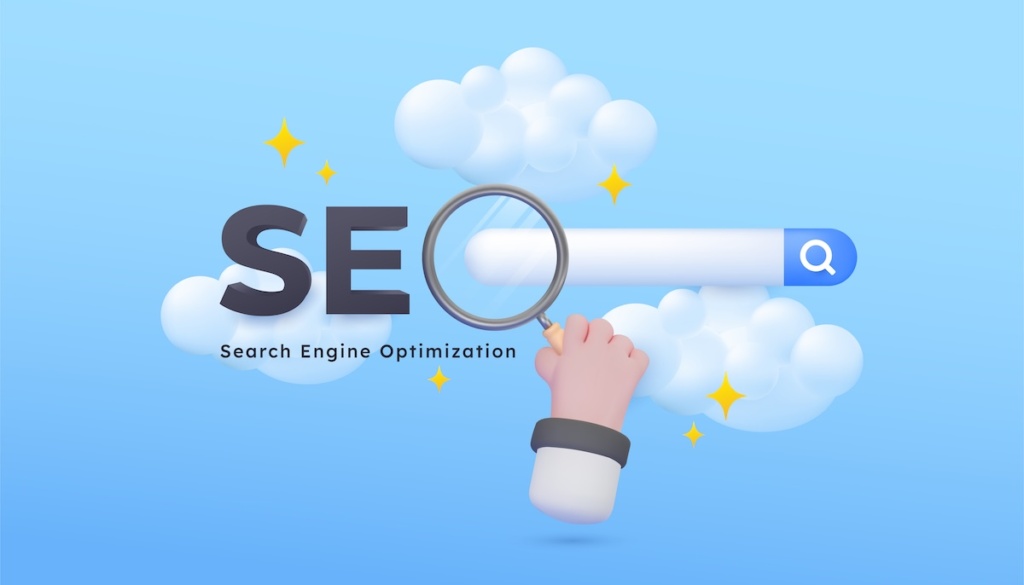
Avoiding Black-Hat SEO and AI Penalties
AI search engines are adept at identifying black-hat SEO practices. These unethical techniques include keyword stuffing, cloaking, and link schemes. Employing such strategies can lead to severe penalties.
AI algorithms can detect manipulation more precisely. Once flagged, sites may experience drastic ranking drops or even delisting.
To steer clear of penalties, focus on ethical SEO. Create valuable, user-centric content and engage in organic link-building.
Practices to Avoid:
- Keyword Stuffing: Overloading pages with keywords to manipulate rankings.
- Cloaking: Displaying different content to search engines than users.
- Link Schemes: Acquiring links solely to boost rankings.
Regular audits with AI tools help ensure compliance. Stay updated on AI developments to anticipate changes and maintain a clean SEO slate.
Adapting to the Future: Continuous Learning and SEO Evolution
AI search engines evolve rapidly, requiring continuous learning in SEO practices. Staying updated on AI trends is crucial for maintaining a competitive edge.
SEO professionals should embrace flexibility. Adaptation to new AI algorithms can safeguard against losing search engine visibility.
Learning opportunities should be prioritized by digital marketers. Engage with industry webinars, forums, and publications to stay informed.
Key Adaptation Strategies:
- Monitor AI Trends: Track emerging technologies and methodologies.
- Invest in AI Tools: Utilize advanced analytics and research tools.
- Engage in Ongoing Education: Attend workshops and courses for skill enhancement.
Proactive adaptation ensures long-term success in AI-driven SEO landscapes. Embrace change for sustainable growth.
Conclusion: Building a Sustainable AI-Driven SEO Strategy
Crafting a sustainable AI-driven SEO strategy is essential for long-term success. Prioritize developing a comprehensive plan tailored to AI trends.
Start by focusing on quality and relevance. AI search engines value well-researched, high-quality content that meets user needs.
Incorporate continuous learning into your strategy. Stay informed about AI advances and adjust your tactics accordingly.
Leverage AI tools to enhance your SEO efforts. Use them for data analysis, keyword research, and performance monitoring.
Collaboration with experts can offer fresh perspectives and innovative solutions. Engaging in community learning can enhance your SEO strategies.
By staying agile and informed, you can ensure your digital presence thrives amidst ever-changing AI-driven landscapes. Aim for adaptability to sustain search engine success over time.
FAQ
What is an AI search engine?
AI search engines use machine learning and NLP to understand intent and context, then generate or curate results that directly answer the user’s question rather than just matching keywords.
How is AI SEO different from traditional SEO?
Traditional SEO leans on keywords and links; AI SEO prioritizes intent satisfaction, depth, structure, and engagement signals (e.g., dwell time, CTR, task completion).
What are the top ranking factors for AI search?
Clear intent match, comprehensive content, strong engagement, mobile performance, structured data (schema), security (HTTPS), and clean technical foundations.
Which schema should I add to AI-optimized articles?
Use BlogPosting as the primary type, then layer FAQPage for Q&A sections and HowTo for step-by-step guides. Add Organization and Person (author) site-wide.
Does structured data really help with AI Overviews?
Yes. Schema clarifies entities, relationships, and page purpose—making it easier for AI systems to select, summarize, and cite your content.
How do I optimize for voice search?
Answer questions concisely, use natural language, include FAQ sections, and ensure fast, mobile-friendly pages. Target question phrases and conversational queries.
What role does NLP/semantic SEO play?
AI evaluates meaning, not just exact phrases. Use topic clusters, synonyms, and related entities to fully answer the problem space.
Are backlinks still important for AI search?
Yes—quality, relevance, and source credibility matter more than raw quantity. Thought-leadership assets and original research earn the best links.
What technical SEO matters most for AI?
Core Web Vitals, crawlable architecture, clean internal linking, XML sitemaps, robots rules, and a secure (HTTPS), accessible site.
Should I use an llms.txt file?
It’s an emerging, optional convention to declare how LLMs can use your content. It won’t replace robots.txt or schema, but it can complement your AI content policy. Treat it as experimental, not a ranking factor.
How often should I update AI-focused content?
Refresh when intents, facts, tools, or SERP competitors change. Add new FAQs, examples, and data—AI systems reward freshness and completeness.
Which metrics show AI-SEO progress?
Track impressions/clicks from AI surfaces (where available), branded/unbranded demand, engagement (time on page, scroll depth), conversions, and assisted conversions from informational content.
Ronan Mullaney is a digital strategist and AI SEO consultant with over a decade of experience helping global brands improve visibility through structured data and semantic optimization. As the founder of ROI Digital Partners, he focuses on building data-driven SEO strategies that align with how AI and modern search algorithms understand content.
About this blog
We are a digital marketing company with a focus on helping our customers achieve great results across several key areas.
Request a free quote
We offer professional SEO services that help websites increase their organic search score drastically in order to compete for the highest rankings even when it comes to highly competitive keywords.
Subscribe to our newsletter!
More from our blog
See all postsRecent Posts
- How AI Algorithms Evaluate Educational Content: 10 Ranking Factors You Need to Know (2026 Edition) November 29, 2025
- AI SEO for Education: The Complete Beginner’s Roadmap for 2026 November 29, 2025
- Top 7 SEO Mistakes Education Websites Make (and How to Fix Them) November 16, 2025









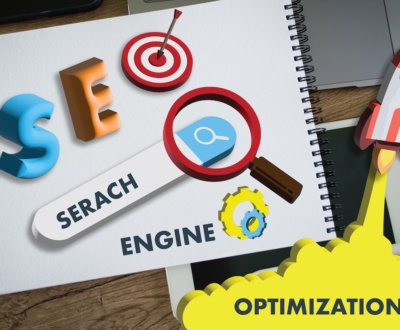

Pingback: Top SEO Agency for Education | Boost Visibility & Tru - ROI Digital Agency
Pingback: What Is AI SEO? A Guide to Smarter Search Optimization Ronan Mullaney ROI Digital Agency
Pingback: How to Get Listed in AI-Generated Search Results - ROI Digital Agency
Pingback: AI Search Optimization Services: Boost Visibility - ROI Digital Agency